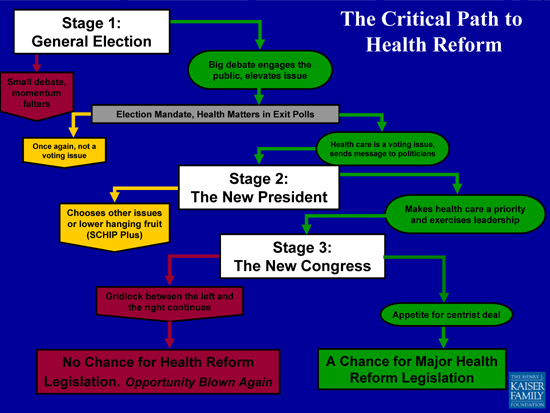Finally, it bears mentioning for organizations like Kaiser that do research and analysis and are committed to public education on complex health policy issues, that the kinds of activities that will be most useful will vary depending on what stage we are at on the “critical path.” At this early stage, education about the problems and the issues is critically important to establish the facts and dispel myths. What are the public’s concerns and experiences with the health care system? How do insecurities about health care affordability and coverage relate to growing economic worries? This is also the time to develop policy ideas that could be a basis for broader agreement in 2009. Later, when we get to a legislative debate in 2009, the details of health reform plans will become all important, as will the challenge of analyzing them and explaining what different plans and proposals could mean for average people. But the main point is simply this: We are only at the beginning of this debate, indeed the real debate has not yet begun, and there are key decision points — in effect different mini health reform debates — still to come.
